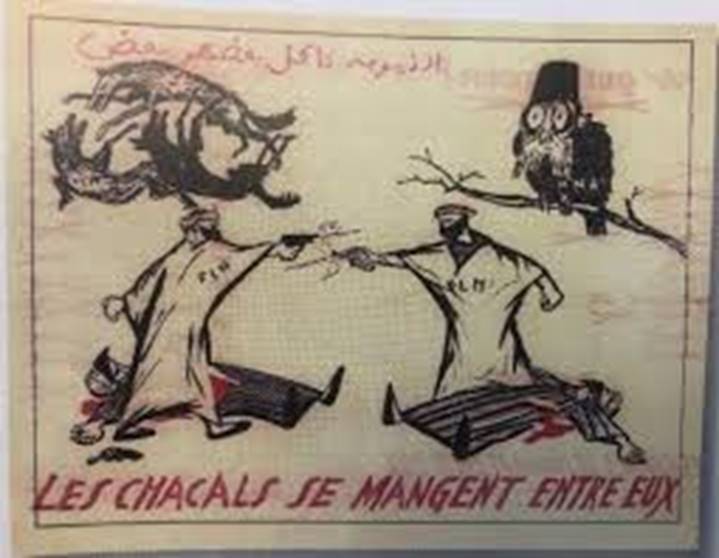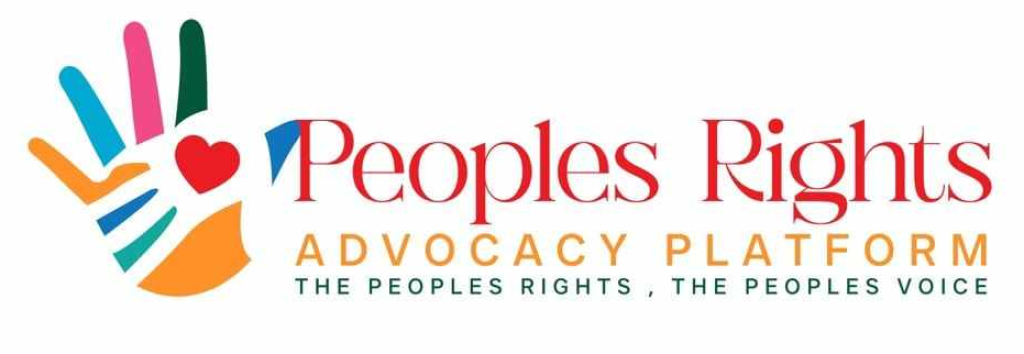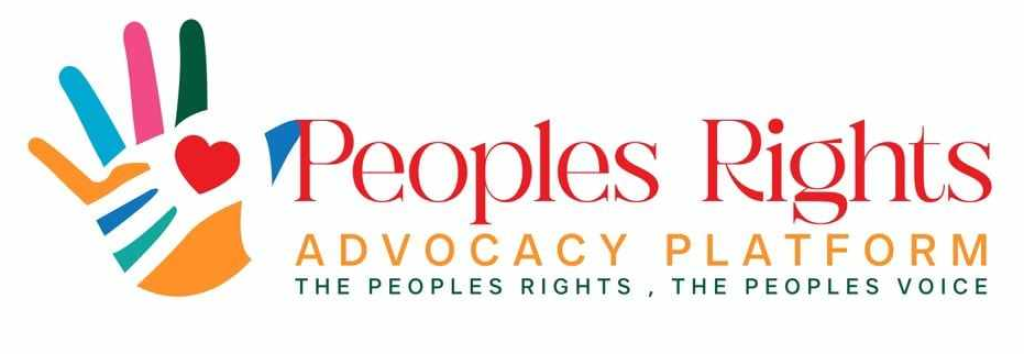
“The Jackals Eat Each Other,” two Algerian resistance fighters killing each other.
This post explores the parallels between the covert destabilization tactics used by the French military during Algeria’s war of independence and their apparent resurgence in Anglophone Cameroon.
Both cases reveal a disturbing blueprint for undermining resistance movements through fear, manipulation, and division
“The Jackals Eat Each Other,” two Algerian resistance fighters stand over the bodies of two dead Algerians while pointing guns at each other. Not only did the French Army aim to portray the resistance fighters as corrupt, deceitful, and exploitative of other Algerians, they portrayed them as an internally divided organization in which members betrayed and killed each other.
1. Historical Context: France’s War in Algeria
During Algeria’s struggle for independence (1954-1962), the French military employed insidious tactics to weaken the FLN (Front de Libération Nationale). Key among these was creating terror gangs composed of Algerians who were armed and directed by the French to terrorize civilians. These actions sought to fracture Algerian society and delegitimize the resistance.
2. Propaganda as a Weapon
The French military used propaganda to paint the FLN as internally divided and prone to violence against its own people. Posters like “The Jackals Eat Each Other” depicted FLN fighters killing Algerians and each other, sowing mistrust and deterring potential recruits. This narrative was crucial in convincing rural populations—the backbone of FLN support—that joining the resistance was dangerous and futile.
3. The Playbook’s Key Objectives
The French strategy in Algeria relied on three main objectives:
- Dismantling Unity: Encouraging internal strife within resistance groups.
- Sowing Fear: Using terror gangs to alienate the population from the resistance.
- Delegitimizing the Cause: Propagating the idea that the FLN was corrupt, violent, and untrustworthy.
4. Colonial Stereotypes and Psychological Warfare
The French strategy was underpinned by colonial stereotypes that depicted Muslim Algerians as deceitful and incapable of unity. This deeply entrenched bias fueled policies of suspicion and hostility, making propaganda campaigns even more potent in their destructive effects.
5. Cameroon’s Anglophone Crisis
In Cameroon, similar tactics have emerged in the ongoing Anglophone crisis. The government has been accused of infiltrating resistance groups, coercing or converting fighters into rogue gangs that terrorize local populations through kidnappings, ransom demands, and indiscriminate violence.
6. Manufactured Violence to Undermine Resistance
The Cameroonian military’s alleged orchestration of these gangs mirrors France’s actions in Algeria. By transforming resistance fighters into predatory actors, the government fosters resentment within Anglophone communities. This alienation not only weakens the resistance but also creates a narrative that resistance movements are inherently chaotic and self-destructive.
7. Impact on Anglophone Communities
The use of terror gangs has devastated Anglophone populations. Civilians, caught between the violence of rogue groups and government crackdowns, are left distrustful of the resistance. Fear of kidnappings and ransoms discourages community support for the cause, further isolating resistance movements from their base.
8. Delegitimization Through Division
As in Algeria, the Cameroonian government’s strategy hinges on portraying the resistance as divided and violent. This propaganda narrative dissuades potential recruits and supporters, framing involvement in the resistance as a perilous and self-defeating Endeavor.
9. A Legacy of Manipulation and Control
The parallels between France’s tactics in Algeria and Cameroon’s actions today highlight a broader pattern of state-sponsored psychological warfare. These strategies perpetuate cycles of violence, erode trust within communities, and undermine legitimate struggles for self-determination.
10. A Call for Accountability
The international community must recognize and condemn these tactics. Historical examples like Algeria show the long-term harm caused by such strategies, and their use in Cameroon threatens to leave a similarly devastating legacy. Justice, transparency, and support for oppressed communities are essential to counteract these manipulative practices and uphold the principles of self-determination and human dignity.

